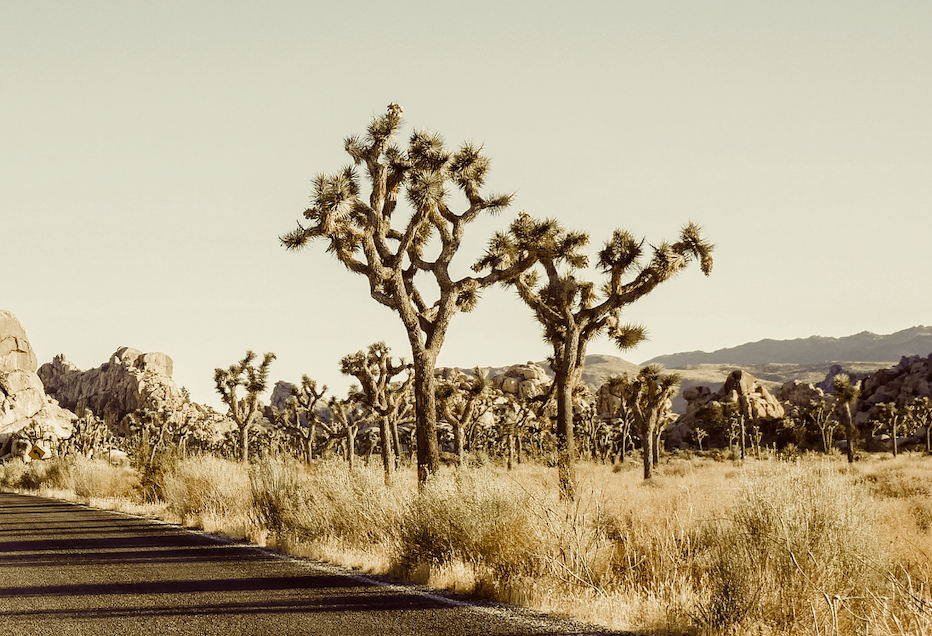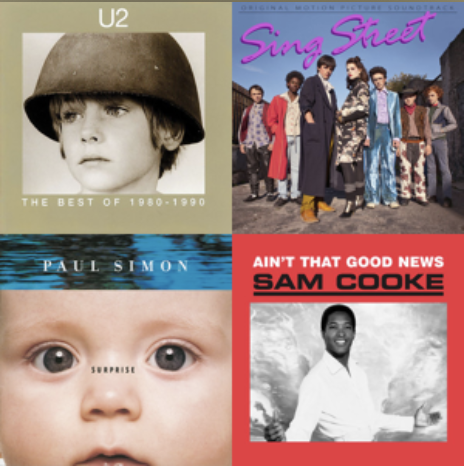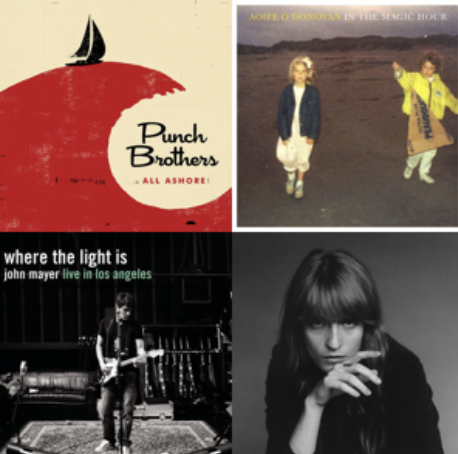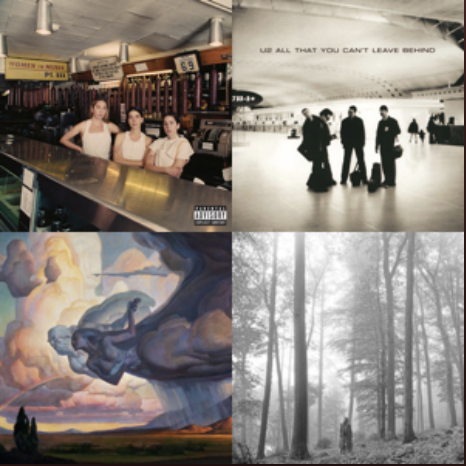Matt McGee became a U2 fan the first time he heard “New Year’s Day” on the radio. The band has been captivating fans like that since their debut album landed in October 1980. McGee helped those fans follow the band and develop bonds with each other via the website he founded in the early days of the World Wide Web.
That site, atU2.com, was maintained by a rotating crew of volunteers, evolving alongside the web itself. When last month, after 25 years of continuous service to the community, @U2 shut down, it marked the end of an era in U2 fandom, one even the band recognized with a social media shout-out.
The Curator spoke to McGee, who worked on @U2 from its inception until May 2019, about his journey cultivating a community centered on a deep, shared love for the popular and influential band.
This interview has been condensed and edited for clarity.
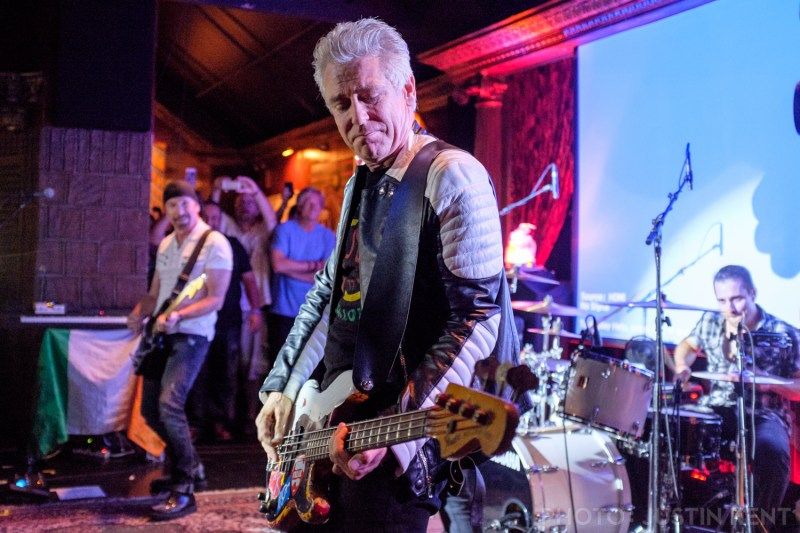
Curator: It only feels right to start from the beginning. How did U2 first capture your imagination, and what has their music meant to you over the years? In other words, why did you decide to create a website for U2 fans, rather than some other artist?
McGee: So the first time I heard them was in 1981. I was living outside Philadelphia and there was a rock station which played “I Will Follow.” I mean, it’s like a huge hit obviously, but I heard “I Will Follow” on the radio and I thought, “that’s a cool song. I like these guys but not enough to go buy an album or anything. I would’ve been about 13 then and I had a couple Police albums, a Genesis album or whatever, so I like “I Will Follow.”
Then in ‘83, when I heard “New Year’s Day” for the first time and that got a lot more airplay on Philadelphia radio, I fell hook, line and sinker, because, you know, I love rock music, but I also love piano. So any rock song that has piano in it, I’m like, “yeah, that’s a cool sound.” So that was it. I was like, “This is the band for me… The Police, forget it. Men at Work, forget it. I’ll call you.” I took my posters down off the wall and everything.
The irony is that I didn’t decide to create a site for U2 fans like what became @U2. At first it was “Matt’s (Mostly U2) Music Page.” This was in ‘95 — October 23, 1995 when I put it online—and it was probably 75% U2 content at the time. But I loved REM at that point. I loved Toad the Wet Sprocket and a bunch of other bands. And so that’s what it was.
I didn’t create it for [a fan community]; it was for me. It was a way for me to sort of just express, you know, my fandom for U2 and these other bands. Over time, because I was more active in what were then the U2 online communities, it became an all-U2 site. Fans would be sharing things in these communities or the mailing lists or whatever. It was all very transitory, if it’s an email thing or a message board, so I started working with the fans that were posting this stuff. And that’s sort of when it became [exclusively] a site for U2 fans. Because all these great photos and stories and what-have-you were being shared in private communities, I thought they needed to be saved and presented somewhere that any fan could find them.
This is also when I gave the site the “@U2” name — sometime in 1996.
Curator: Today, the whole idea of an artist becoming popular or mainstream is different. Social media has made it easier for lesser-known artists to find devoted audicenes, and for those people in those audiences to find one another. Can you share your impressions of what the internet was like when you founded @U2 back in 1995?
McGee: It was really slow.
No, seriously — it was great! There were only a few different fan communities when I got online in 1994. AOL and CompuServe each had one, and probably a few other services whose names I can’t remember. Prodigy? Was that one? I was active at first in the “U2 Anyone?” community on AOL. It was kind of like a big message board. I was also in the CompuServe U2 community.
The main U2 community online back then was “Wire,” which was a mailing list that had fans all over the world. It was pretty incredible. There was some crap and stupid fights and trolling that would happen — even 25 years ago. (A lot of the crap we see today on social media isn’t as new as we think.) But for the most part, Wire was really great. If you were a U2 fan online, you just had to be part of it. You had fans all over the world sharing stories, asking and answering questions, having incredible discussions about the band’s lyrics and videos.
I remember some amazing conversations about the visuals from the “Hold Me, Thrill Me, Kiss Me, Kill Me” video. And don’t even get me started on the Passengers album. First there was this collective “WTF” — because remember, back then, news wasn’t instantaneous like it is today. We all kinda relied on fans posting what they read about in their local paper, or Rolling Stone and other magazines, or what they saw on MTV News.
There were also some pretty good music news sites online, but it was nothing like today where if an artist stubs their toe, you know about it. And so you’d get these bits and pieces and you had to piece things together. I think we all knew there was some U2 and Brian Eno project going on, but when the news releases went out that it wasn’t a U2 album, but they’d formed this new group called Passengers … if hashtags were a thing then, Wire would’ve had dozens of posts with nothing other than #mindblown.
There was a feeling of discovery and camaraderie on Wire, especially, but just generally around the U2 online community. I remember a great sense of everyone finding their tribe, you know? For me, I was always the biggest, most dedicated U2 fan I knew. There was no one in my circle of friends or co-workers with whom I could have a deep U2 conversation. And it was probably the same for most every fan active back then. Then we all discovered each other online.
You could have conversations with other fans that totally “got it” and understood you like you were never understood before. I remember a fan named Ryan Connolly posted — I think it was in the AOL message board — about going to Death Valley and how he found the actual Joshua Tree. And that might sound crazy to your co-workers, but when he posted it online, we were all like “Oh my gosh! That’s the coolest thing, I want to find it, too!”
These early U2 fan communities offered a vindication and confirmation that you weren’t alone, that there were others out there who felt the same as you about the band and its music.
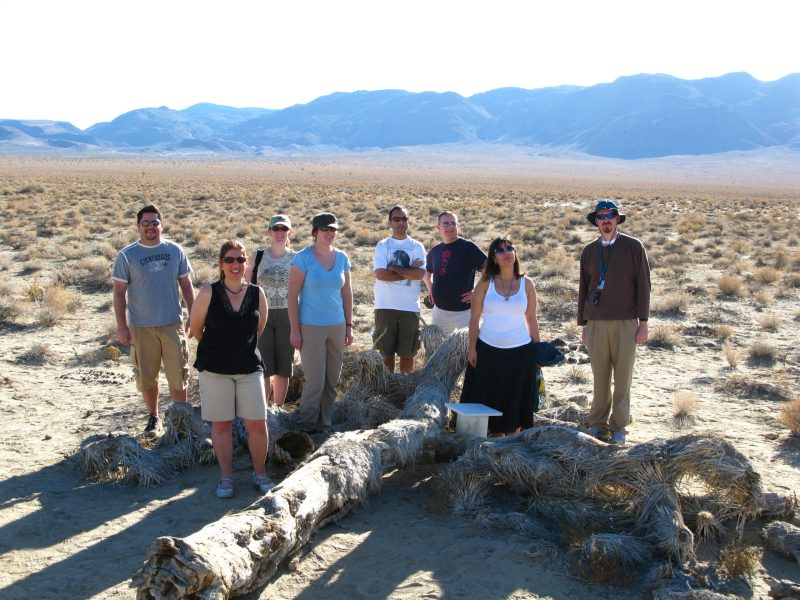
Curator: What was it like to create a space for fans to come together in those early days of the internet? How did the needs of the fan community and the site itself evolve over the years?
McGee: The problem with the community, and the problem with all that back in the 90s was that it was disappearing so quickly, all this great stuff, these great conversations posted online. I wanted it to be recorded somewhere.
There was so much good stuff being shared [in those communities]. And then, like six months or a year later, somebody would say, “hey, I remember a year ago somebody posted this article or this interview with Bono. Does anybody know where that is?” And I was like, wow, all this stuff needs to be safe.
On Wire, a lot of fans would travel to Ireland and Dublin specifically, and they were like, “Oh, you know, hey, I saw the studio where they recorded. I saw Windmill Lane. I saw the studio where they recorded the early singles” or, “You know, here’s where they went to school”. And “Here’s photos of Mount Temple.” And I was like, “Hey, guys, can I collect all this stuff together and put it on the website and offer it as a guide for other fans in the future that want to travel to Ireland and see the sights?”
So it was all very much in the early days just being part of the community and listening and observing. Whether it’s music or any community, any business, even today, if you’re trying to serve a community, you need to be part of that community and listen and respond.
Curator: What does it take to keep an operation like @U2 going over so many years, and what motivated you and the rest of the team to put in that work?
McGee: I would say probably at the height of it, it was not unusual for it to be more time consuming than a part-time job. I probably spent, for many years in a row, 20, 30 hours a week on it — eating dinner, then, from seven or eight until midnight you’d be working on articles or helping somebody with this project or posting something for somebody else. there were a lot of weekend mornings, getting the crew together for a brainstorming session for article ideas. You had to have really understanding family members who were willing to let you disappear at times.
For me, the motivation was, number one, to express my fandom, Some fans are great musicians, so they go into tribute bands. Some fans are huge collectors, like I have posters and stuff on the wall, but I don’t have tons. I’m not part of the collector community. Some fans travel around, follow a whole tour. That was never me. I built a website. My background was news and journalism.
The motivation was just a way for me to say, “hey, I’m a U2 fan.” Over time, you start to realize that you’re having an impact on the community and that people are appreciating what you do and getting value from it. Then I think it sort of transitions into not just “I’m doing this for myself as a way to express myself as a fan,”; there’s a sense of obligation, too. You start to realize that what you’re doing is valuable to people and does mean something to people. And there were a couple of specific events that sort of opened my eyes to that.
Curator: How do you think the community of @U2 played a role in the experience of being a U2 fan?
McGee: I’m pretty critical of how I do things and how we did things. I can go through the site’s history and say, well, we could have done this better and we should have done this better and we missed this; that’s just part of my nature, to never be satisfied. But at the same time, I do know we made a difference.
Here’s the part where I start to sound like I’m bragging. But it’s not bragging if you can back it up, right? The night before the site went offline, I wrote the current staff a long goodbye/thanks note. I said, “Together, we made U2 fandom — which, let’s all be honest, can be pretty shitty at times — a better place. We made being a U2 fan a better experience.”
I know that’s true. I believe that — because fans have been telling me that for most of the site’s history. The Rock Hall event [celebrating a new U2 exhibit Rock & Roll Hall of Fame] in 2003 was a game-changer. That was the first time our staff really got to spend time with our readers, our community, non-stop for a weekend. And it was just incredible to talk to them in depth and hear their stories.
I stayed later than the rest of our crew and walked back to the hotel alone when it was over. I remember calling my wife in tears and telling her some of the stories fans had told us — about how something we’d written had this significant impact in their personal lives, or how we helped them connect with other fans that were gonna be friends for life. Just these amazingly personal stories and they were filled with gratitude, and that was the first time I started to understand the impact of what we were doing in building this community of fans around the site.
That continued at pretty much all of the events we did over the years. Fans were always telling us how they met their spouse in our forum or at one of our fan events, and now they have little U2 fans running around the house. When the site went offline, we got a ton of replies on social media — fans saying what I said to the staff the night before, that we’d made U2 fandom better for them. It was overwhelming.
And more so than any news story we broke first, or any stuff like that, hearing things like that from U2 fans is really the best thing we did. The site is gone, but our impact on the fan community will never die.
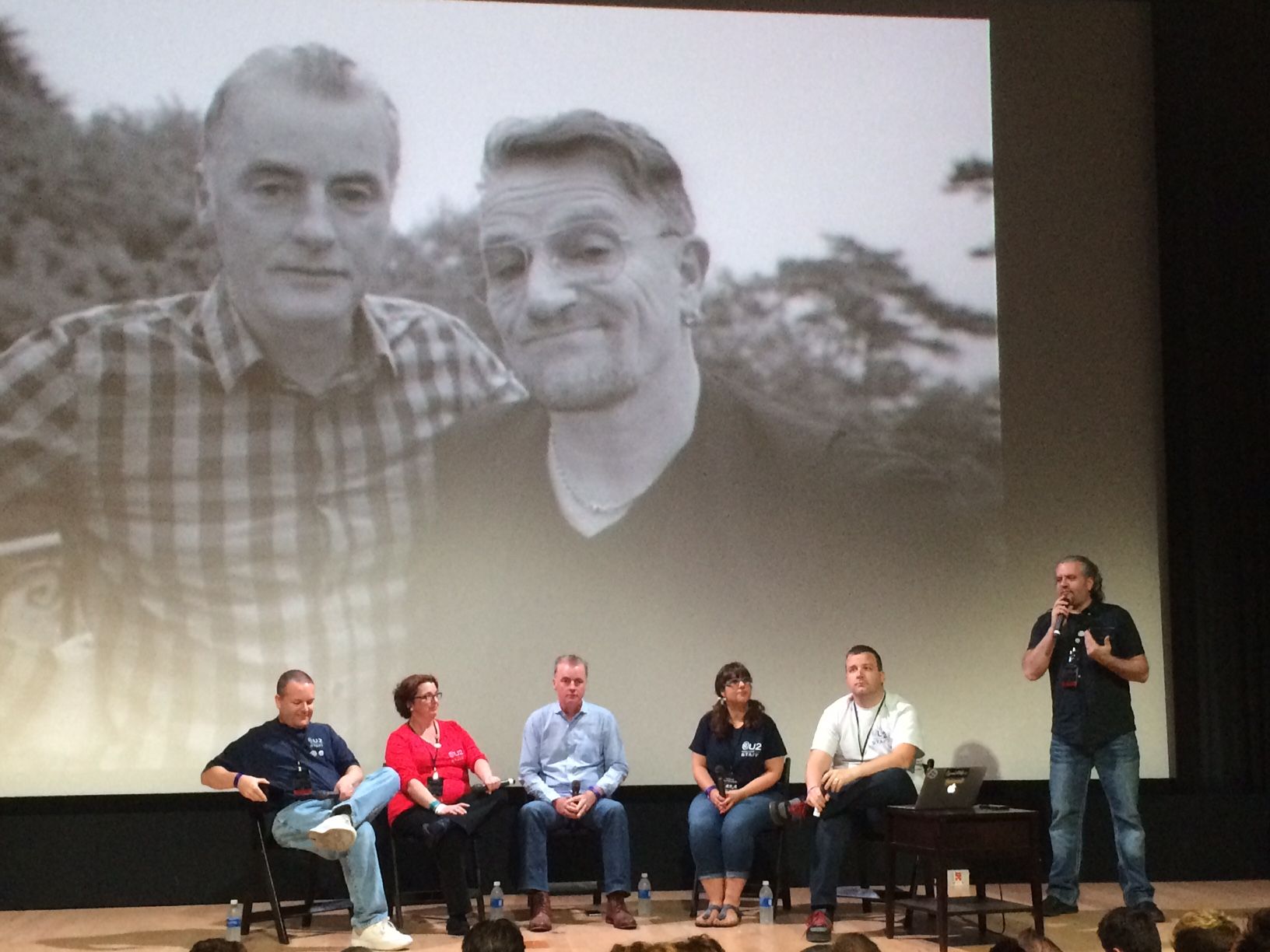
Curator: In your closing note on the site, you described the endeavor as an act of service to your fellow fans. Do you have any final reflections on the U2 fan community, or hopes for its future?
McGee: When I left the site in May of last year, I wrote a little goodbye thing, just announcing that I was going to be leaving, which was awkward. I never like drawing attention to myself, but I thought, “God, if I just step away and nobody knows why, they’re probably going to ask a million questions.” So I said at the very end of that thing — it was just like an encouragement to be grateful and appreciate what you have.
U2 is going to call it quits someday, probably soon. I don’t know. I haven’t been paying close attention lately. But, you know, when that happens, it’s over. And at that point, I said this in the note — you’re going to wish you could hear “Pride” live one more time.
Matt McGee’s U2 Book Recommendations
We also asked McGee for books that U2 fans might be interested in. Here are a few he shared:
- U2 by U2 — Neil McCormick
- U2: At the End of the World — Bill Flanagan
- Exploring U2: Is This Rock n Roll? — Scott Calhoun
- U2: Rock ‘n’ Roll to Change the World — Tim Neufeld
The Curator may earn a commission from Bookshop.org on items purchased through these affiliate links.

